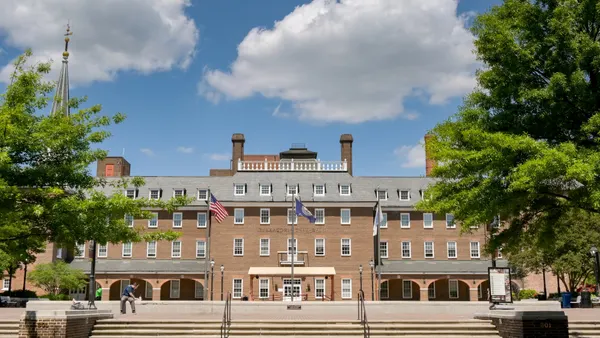Dive Brief:
- Columbus, OH ranks as the best city for tech workers, according to a new study from personal finance startup SmartAsset. Dallas, TX; Raleigh, NC; Cedar Rapids, IA; and Davenport, IA rounded out the top five on the list.
- The ranking was based on five factors: the percentage of people employed in tech, the average salary for a tech worker, how the average tech salary compared to other fields, the unemployment rate and the overall cost of living.
- Incorporating factors like cost of living and relative incomes gave more weight to non-traditional tech hubs. Of the top 10 cities, half were in the Midwest (three in Iowa alone), and half were from Southern states (including three in Texas), rather than on either coast.
Dive Insight:
Typically, tech sector rankings, like a recent one from Startup Genome, have placed Silicon Valley, New York and Boston as the best places for tech businesses. Those cities have a high concentration of existing businesses, universities and other resources, and have proven success for startups. But the influx of tech in those cities has also raised rents and made life more difficult for citizens and workers, who have to deal with a high cost of living.
Columbus fared well in the SmartAsset ranking — the third year in a row it’s been rated the best city for tech workers — in large part because of how far an average tech worker’s salary goes there. The average tech worker earns $92,440 in Columbus, 1.8 times the average salary of workers across other industries, and the cost of living is lower than the national average.
Similarly, all of the top 10 cities in SmartAsset’s ranking were below the national average in cost of living, and tech workers made between 1.5 and 1.9 times what the average worker makes.
It’s a reminder that tech can flourish outside of the traditional hubs, and without some of the backlash the industry has experienced in cities like San Francisco, Seattle and New York. The high salaries comparative to other industries also show why cities have done so much to recruit tech startups.
Columbus has already proven itself an innovator on smart city tech, especially after winning the U.S. Department of Transportation’s Smart City Challenge. The city has rolled out new electric vehicle incentives, adopted micromobility and bus-rapid transit and has even opened up city data to startups through hackathons.










